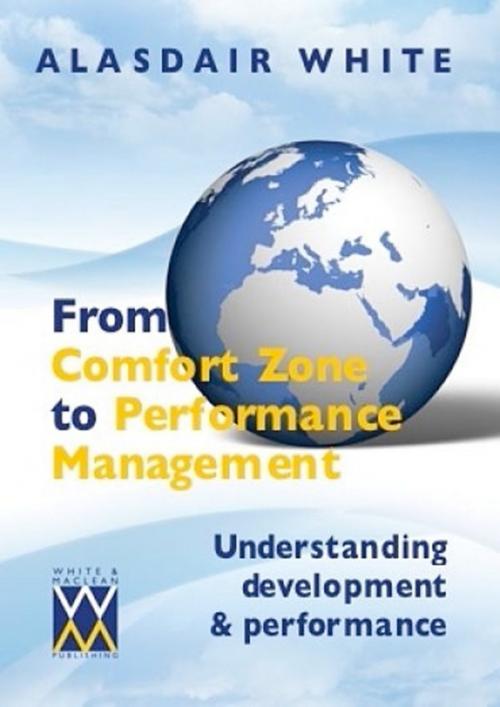From Comfort Zone to Performance Management
Business & Finance, Human Resources & Personnel Management| Author: | Alasdair White | ISBN: | 9782930583112 |
| Publisher: | White & MacLean Publishing | Publication: | August 11, 2011 |
| Imprint: | Smashwords Edition | Language: | English |
| Author: | Alasdair White |
| ISBN: | 9782930583112 |
| Publisher: | White & MacLean Publishing |
| Publication: | August 11, 2011 |
| Imprint: | Smashwords Edition |
| Language: | English |
This paper seeks to take the established behavioural models relating to comfort zones, group and individual development, and managing change, and use them to create a methodology for understanding and managing performance. It seeks to provide a reliable approach to getting the best out of people that is firmly based on sound behavioural and psychological principles, which are backed up by observational data and practical field research. It is not, however, a ‘scientific’ paper full of detailed research data, complex theories and high-flown rhetoric; rather it is a practical guide based on twenty years of consultancy in the field and eight years of teaching university students in a business school.
In understanding and managing performance, the key is the management of the stress. Both motivation and anxiety are, behaviourally, sub-sets of stress and, consequently, they are tools to assist in performance management – there will be times when motivation will be the most useful tool, while at others the introduction of anxiety will be more appropriate. However, too much motivation or anxiety will result in too much stress and this will result in performance being disabled.
The correct management style needs to be applied in each phase if performance is to be maximized. Applying the incorrect style has a negative impact on performance. In situations in which a series of performance-enhancing steps need to be taken, it is imperative to start the new performance cycle at the point at which the old performance cycle develops a slowing performance trend.
This paper seeks to take the established behavioural models relating to comfort zones, group and individual development, and managing change, and use them to create a methodology for understanding and managing performance. It seeks to provide a reliable approach to getting the best out of people that is firmly based on sound behavioural and psychological principles, which are backed up by observational data and practical field research. It is not, however, a ‘scientific’ paper full of detailed research data, complex theories and high-flown rhetoric; rather it is a practical guide based on twenty years of consultancy in the field and eight years of teaching university students in a business school.
In understanding and managing performance, the key is the management of the stress. Both motivation and anxiety are, behaviourally, sub-sets of stress and, consequently, they are tools to assist in performance management – there will be times when motivation will be the most useful tool, while at others the introduction of anxiety will be more appropriate. However, too much motivation or anxiety will result in too much stress and this will result in performance being disabled.
The correct management style needs to be applied in each phase if performance is to be maximized. Applying the incorrect style has a negative impact on performance. In situations in which a series of performance-enhancing steps need to be taken, it is imperative to start the new performance cycle at the point at which the old performance cycle develops a slowing performance trend.















